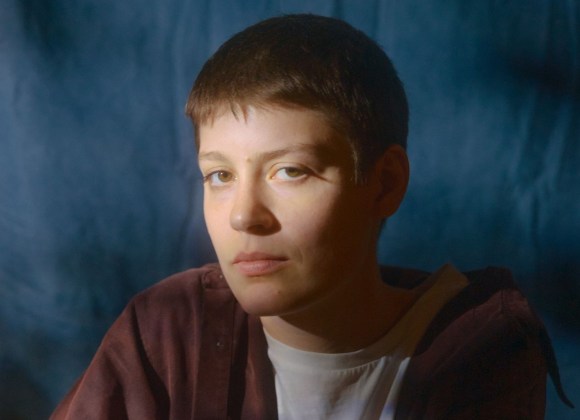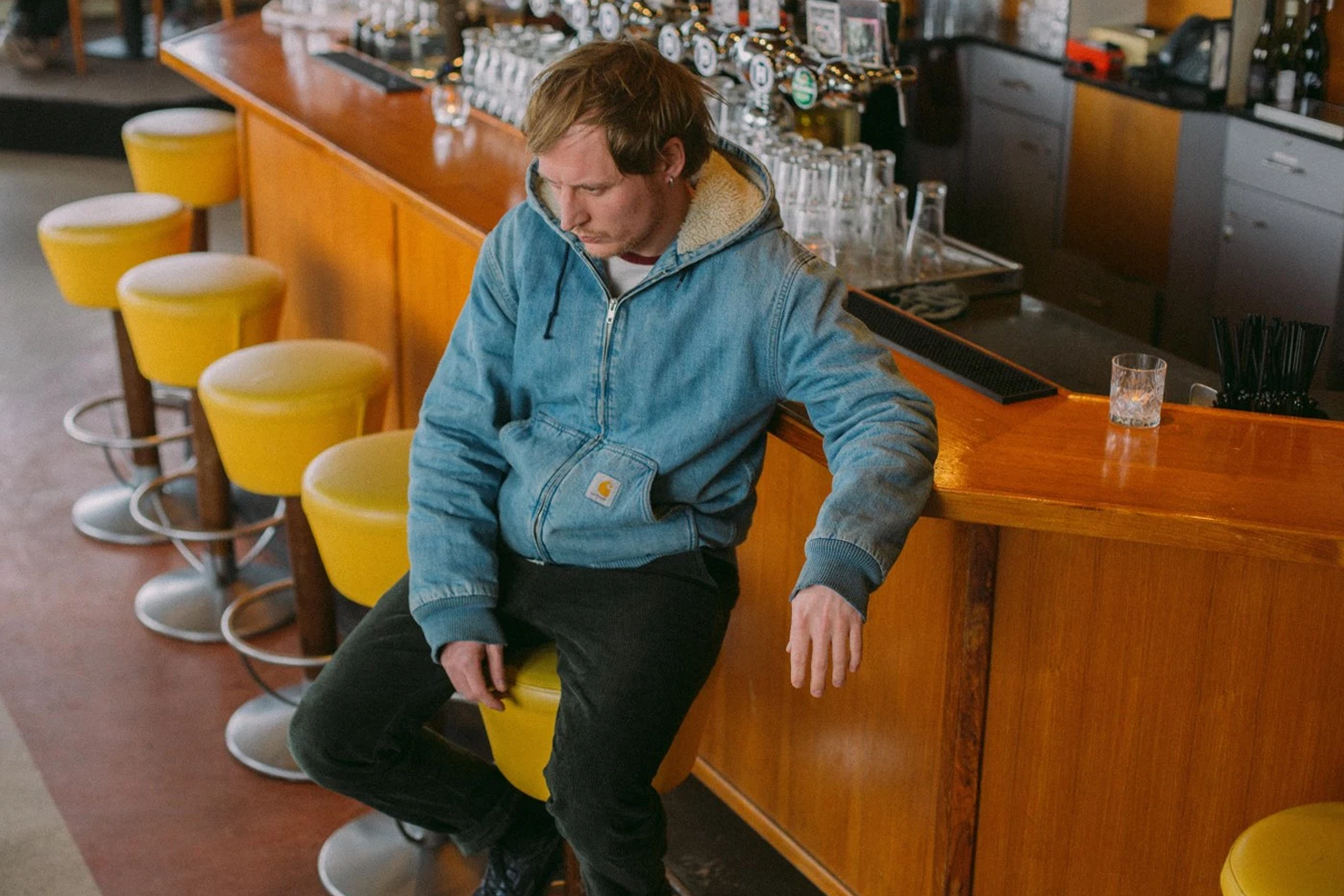Marina Tadic is the spiritual mother of Eerie Wanda. But Eerie Wanda is also a fantasy figure, a different version of Tadic. Her second album Pet Town largely revolves around that fantasy world, the bubble in which the Bosnian-Dutch Tadic has isolated herself for the past two years and has therefore found a home.
Written by: Dirk Baart
Photos: Edwin Smits
It is a drizzly day in Nijmegen. Elsewhere too, probably. It’s the type of day when the sky lies over the world like a white duvet for twelve hours, when time seems to stand still. The ideal weather for Pet Town, the new album by Eerie Wanda, with which songwriter Marina Tadic found peace in a busy world. “Very interesting, how time works,” she muses in a coffee shop in her hometown. “Now I am also very busy and stressed, because there is simply not enough time. But if you think back to a quiet period or isolate yourself for a while, you suddenly experience time very differently.”
Tadic wrote Pet Town, the follow-up to her debut Hum (2016), all on her own for the past two years. "Although I haven't lived in a cave, you know." No, she just came home from a long tour and went to live on her own for the first time. “Then I thought, OK, now what? Now I'm all alone. I felt a kind of loneliness, but in a positive way.” Tadic made intimate demos with vocals and guitar, often recording them with her phone. For example, 'Sleepy Eyes' is the sound of her strolling through the bedroom and playing the first chords of 'Jailhouse Rock' on autopilot. Tadic turned it into a minimalist folk song with maximum impact. She no longer aspired to Hum's (relatively) full band sound. The band members with whom she made the arrangements for that record only received the songs at a later stage. They too recorded their parties in seclusion. Bassist Jasper Verhulst, for example, did it in different dressing rooms, while he traveled half the world with the Dutch-Turkish psych rock band Altin Gün.
Even in the mixing phase – overseen by Jasper Geluk (Altin Gün, Jungle By Night) – it was of the utmost importance to stay close to Tadic's demos, to keep the homely character of her smallest songs. The band ignored live drums. Instead, Jasper Verhulst worked with a Roland drum computer and Nicola Mauskovic and Marnix Wilmink of The Mauskovic Dance Band provided percussion. Everyone also added some hand claps. “I'm not interested in something that's technically perfect or recorded in the highest quality,” Tadic explains. “I don't find that very exciting. I wanted to keep it natural and capture the loneliness that is in the songs.”
That loneliness allowed Tadic to make an album without regard for anyone else's opinion. For a moment, she was the loner again, listening to Kurt Cobain in high school (“I still do”) and only hanging out with the other ‘loners’. Even if Eerie Wanda is most reminiscent of sixties pop, there is a kind of thin layer of punk underneath, thanks to Tadic's quirkiness. “More Marina”, that's how Tadic sums it up himself. “I had a little less experience with my first record. Then I felt a lot of support from my band and I fully embraced that support. But when my band members got busy with other projects, I started searching a lot more. I wondered who or what I was. And what I wanted to make.”
Tadic ended up in a bubble that turned out to be hugely conducive to her creativity. “Only in that bubble can you really be authentic, create your own world and make music from there.” At the same time, the singer realizes how dangerous it can be to linger in your own warm bubble. Just about every imaginable gap in society has grown over the past decade as social media only serves users what they want to see. “I think it's very important that people talk to each other, especially when they don't agree with each other.” The song 'Rockabiller' is more or less an extension of that, telling the story of someone who is so lonely that she no longer talks to anyone, whether they agree with her or not. “That person starts to fantasize that someone loves them and stops living in the real world altogether. I've always been dreamy, but I'll never get lost in my own fantasy. Although I can well imagine that happens to people.”

Her fantasy is therefore Tadic's most important home. At the age of 6 she fled with her parents - who are of Croatian descent - to the Netherlands, away from the war that raged in Bosnia and Herzegovina. “As a result, home has become a very strange concept for me. When I am in Bosnia, I feel like a foreigner. But actually, I do here, too. That is why I create the feeling of home within myself. And in the end, that is only to my advantage, because it gives me much more freedom.”
Still, Pet Town refers to a kind of home. Not necessarily to Nijmegen, but to just the universal feeling of peace that you get when you withdraw for a while in your quiet, boring town. “Nijmegen is quite far from the Randstad conurbation”, she laughs. “Sometimes I thought: I have to go there. But when I'm there, it's nice to be able to go back.” Meanwhile, Eerie Wanda has achieved international reach. Hum was released in the United States on label Beyond Beyond Is Beyond, Pet Town now appears on Joyful Noise, the American label also representing Deerhoof, Sebadoh and Surfer Blood.
Tadic was lucky that her album ended up at the label through a good friend she had met in Nijmegen, because she’s not quite the type for shameless self-promotion. Last year, she even forgot that she had Instagram at all for months. “In that respect, as a musician I also feel more at home in the US: I think music comes more from feeling there. I don't find it very interesting how well I play something or exactly how I present myself. Sure, it's important to promote yourself and I should really do that more, but I just don't care what people think of me. I just want to focus on the music. I don’t care if I have fewer fans.” Editor's note: this article was originally published in Dutch. Some quotes may have been altered in the translation.








